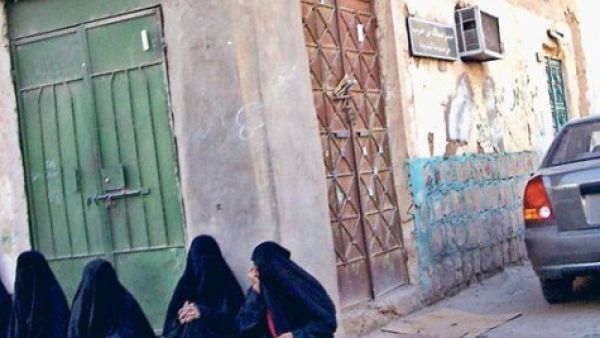On the announcement of the World Bank saying that Saudi Arabia has the lowest poverty rates in the Arab world, a simple Google search turned up site after site disputing the validity that the ranking could ever possibly be accurate.
While the World Bank relies on data garnered over time and measured on specific criterion, it hardly seems a compliment given the extreme poverty stories and images that come from the region. While Saudi is known to the rest of the world as boasting massive oil wealth, this lifestyle is enjoyed only by the upper echelon of Gulfies.
Not only has Saudi been rated as the lowest poverty rate in Arab countries, it ranks as 10th in the world overall. So what exactly does this ranking mean?
While the exact poverty line is relative, it is known internationally to constitute the minimum income rate required for providing basic life needs, such as food, clothing, housing, and health care. Anyone who falls below this line is considered to be living in extreme poverty.
While Saudi can claim that the state offers free health care and education, it offers very little in the way of income assistance or food stamps. Many poor Saudi families rely on charity as Muslims are expected to give a portion of their annual income and many go beyond the minimum.
On a global spectrum, Chad, Haiti and Liberia rank as the poorest countries, having the highest poverty rates, while Taiwan, Malaysia and Ireland rank as having the lowest poverty rates.
Taiwan has about 1.5% of its people living in poverty while Saudi is said to have 12.7% living in poverty.
If things are so great in Saudi Arabia, wealth is so abundant and poverty is at a record low; then why all the noise about the poor in Saudi?
Campaigns against poverty in the Gulf Kingdom
“Two young Saudi bloggers were sent to jail for fifteen days after uploading a ten-minute documentary on poverty in Riyadh, the capital of one of the richest petro-states in the Gulf.”
In their video, they point out that “over the past 27 years Saudi Arabia has donated 56 billion euros to developing countries, while 22% the country's own citizens were reportedly living in relative poverty in 2009 (local media put the number at 30% in 2008).”
Unfortunately, the documentary cannot be viewed as the site has been terminated - the conservative Kingdom is well known for its ruthless censorship. About the authors, both bloggers were arrested and held for two weeks. There is still no exact record of their crime or why they were held for so long.
Earlier this year, a Twitter campaign regarding poverty in Saudi rose to the top of the trending lists. #الراتب_مايكفي_الحاجة (loosely translated as "the salary does not meet my needs") got 17 million tweets regarding poverty in the Middle East in the first two weeks they were live.
While the campaign was not targeted to Saudi specifically, the most tweets about issues related to the poor came from locations in the Kingdom.
"There's a feeling among some people that I guess you could characterize as anger. Others are disappointed, some think it's a question of (the Saudi government's) priorities," says Fahad Nazer, a Saudi political analyst with JTG Inc.
Manal Al Sharif, known for her feminist activism and driving challenge, had comments on the issue.
"The government is giving handouts to Egypt, Jordan and Tunisia, and using a third of the country's budget for this year to pay for the Riyadh metro. Meanwhile, Saudi's are paying most of their salary on rent, private schools, and private hospitals -- because public ones aren't good -- while salaries have practically stayed the same".
On exposing the truth about Saudi poverty, Time magazine sent a reporter to capture images in the poorest neighborhoods. Lynsey Addario describes how the country challenged her idea about the truth.
"What you see on the surface are the shiny buildings and the shopping malls and the new universities being built -- the wealthy side. I was actually quite shocked when we went to the slums," she says.
Saudi’s secrets are slowly emerging -- as the region is beginning to understand, this poverty is not something that can be swept away under the carpet.
"It's true, we are a very private nation, and we don't want the rest of the world to know anything about us," admits Al Sharif.
"Saudis are realizing that you can't isolate yourself from the rest of the world, because the only way we can communicate and read each other's views is through social media. It's our kind of parliament, where we can go and debate, and do things we can't do in the real world."
By Jennifer James







